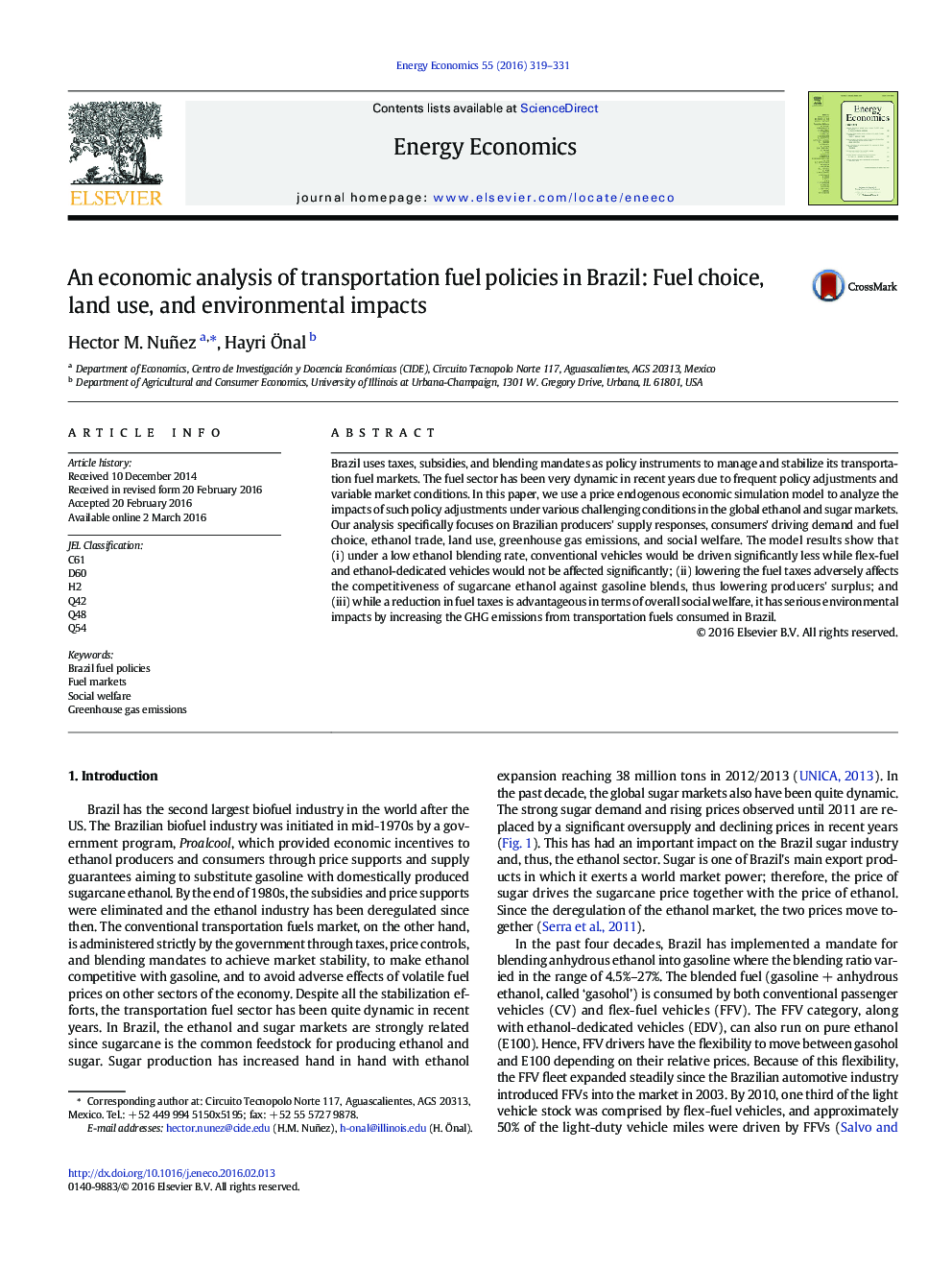| کد مقاله | کد نشریه | سال انتشار | مقاله انگلیسی | نسخه تمام متن |
|---|---|---|---|---|
| 5064294 | 1476709 | 2016 | 13 صفحه PDF | دانلود رایگان |
• We examine the economic and environmental impacts of Brazilian fuel policies.
• We also analyze impacts under different sugar and ethanol markets conditions.
• Lowering blending rate reduces distance driven by conventional cars.
• Lowering fuel tax rates affects competitiveness of ethanol against gasoline blend.
• Reducing fuel tax rates has dramatic environmental impacts by increasing emissions.
Brazil uses taxes, subsidies, and blending mandates as policy instruments to manage and stabilize its transportation fuel markets. The fuel sector has been very dynamic in recent years due to frequent policy adjustments and variable market conditions. In this paper, we use a price endogenous economic simulation model to analyze the impacts of such policy adjustments under various challenging conditions in the global ethanol and sugar markets. Our analysis specifically focuses on Brazilian producers' supply responses, consumers' driving demand and fuel choice, ethanol trade, land use, greenhouse gas emissions, and social welfare. The model results show that (i) under a low ethanol blending rate, conventional vehicles would be driven significantly less while flex-fuel and ethanol-dedicated vehicles would not be affected significantly; (ii) lowering the fuel taxes adversely affects the competitiveness of sugarcane ethanol against gasoline blends, thus lowering producers' surplus; and (iii) while a reduction in fuel taxes is advantageous in terms of overall social welfare, it has serious environmental impacts by increasing the GHG emissions from transportation fuels consumed in Brazil.
Journal: Energy Economics - Volume 55, March 2016, Pages 319–331
